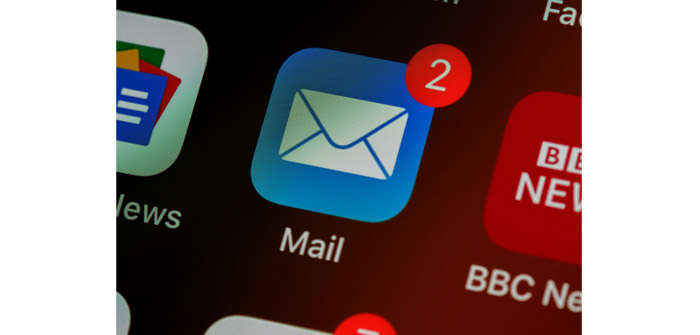Health organizations are accountable for more than providing quality medical services. They are also responsible for safeguarding patient information in their records at all stages. Email communication is a potentially perilous channel through which patient information flows. From accidental information leaks to unforeseen data breaches, risks abound across this channel.
To tackle these risks, the Health Insurance Portability and Accountability Act (HIPAA) set stringent email compliance requirements. Organizations need to comply with them to safeguard the privacy of protected health information (PHI) communicated via email.
Beyond other health data stipulations, these guidelines ensure the integrity, confidentiality, and availability of emailed PHI. For example, they require businesses to implement secure transmission protocols, ensuring data integrity. The use of encryption and access controls keeps confidentiality on track, while availability means authorized users can access PHI when required.
However, data breaches are a bigger problem than ever, despite controls and compliance regulations. Statnews reports that large health data breaches affected at least 116 million individuals in 2023, an all-time high. Medical companies can avoid inadvertent breaches of HIPAA regulations by practicing utmost care in all areas, including email compliance.
In this article, we will highlight a few mistakes they should steer clear of to uphold patient privacy and compliance in HIPAA email communication.
Mistake #1: Sending Unencrypted Emails Containing PHI
As the Federal Trade Commission reminds us, unencrypted email can compromise security when transmitting information. When it comes to HIPAA compliance, a lack of encryption can endanger key data, such as an individual’s health status, treatment, or payment details.
Sending such information unencrypted opens it to the risk of access and interception by unauthorized parties. Medical companies can avoid this HIPAA email compliance blunder by adopting robust encryption protocols for all outgoing emails containing PHI.
With proper encryption, data becomes indecipherable to anyone lacking the decryption key. This measure fortifies the security of sensitive information during transit, even if it falls into the wrong hands.
Mistake #2: Using Personal Email Accounts for Work Purposes
The lines between personal and professional email communication are blurred in today’s interconnected world. Unfortunately, lack of awareness in this context poses serious risks to PHI and HIPAA email compliance for healthcare organizations. When employees use personal email accounts for work-related communication, they may expose patient data to unsecured platforms.
When using personal emails, PHI is exposed to unauthorized access due to accidental sharing with unintended recipients and interception during transmission. Additionally, personal email accounts often lack robust encryption or access controls, making them vulnerable to hacking or phishing attacks. If the account is compromised, the organization might struggle with patient privacy.
All employees must be aware of their responsibilities regarding handling and transmitting PHI via email. Medical companies can do their bit by enforcing policies mandating the use of designated email channels for all work-related correspondence. Setting clear boundaries can help them sidestep inadvertent breaches of patient privacy.
Mistake #3: Failure to Implement Access Controls
Access controls are the saviors of sensitive patient information within the organizational ecosystems of medical companies. With data breaches costing healthcare organizations $11 million per incident in 2023, the effort to implement robust controls is worthwhile.
Failure to implement robust access controls also leads to significant HIPAA compliance risks. Imagine the havoc that unauthorized access or transmission of emails with PHI can cause for a healthcare company. Not everyone in the organization needs access to these emails, specifically if they do not need to share them with others to deliver integrated patient care.
At times, people may accidentally or intentionally share data only because they have access to it. Mistakes like lax access permissions, insufficient monitoring of user activity, and inadequate authentication mechanisms can result in unauthorized access to PHI.
A layered approach to access control can mitigate this risk. For example, you can set role-based access permissions and stringent user authentication protocols. Continuous monitoring of user activity is equally important.
Mistake #4: Neglecting Employee Training
According to a joint study conducted by Stanford University and security firm Tessian, human error is responsible for nearly nine in ten (88%) data breach incidents. This figure underscores the threats of neglecting employee training in healthcare organizations.
Employees may be the frontline defenders and potential weak links when it comes to HIPAA email compliance. Imagine your employees falling for email phishing attacks, or sending PHI unencrypted, simply due to a lack of awareness. They may end up causing inadvertent breaches of patient privacy.
Investing in training initiatives can equip them with the knowledge and skills they need to handle the intricacies of HIPAA regulations. It can also help them recognize potential risks and compliance pitfalls and avoid them altogether.
Mistake #5: Lack of Monitoring and Incident Response Procedures
Vigilance is an underrated but significant element of effective HIPAA email compliance. However, medical companies often lack monitoring mechanisms and incident response procedures. This exposes them to potential breaches.
Additionally, being ill-prepared to mitigate the impact of these breaches adds to their woes. To prevent this mistake, organizations should have comprehensive monitoring solutions in place.
These should scrutinize email traffic for anomalies that indicate unauthorized access or data breaches. Similarly, a clear incident response protocol ensures swift and effective mitigatory action if something goes wrong.
Prevent HIPAA Email Compliance Mistakes
In conclusion, email communication offers the benefits of convenience and operational efficiency in the healthcare sector. However, it can risk patient privacy if organizations do not stay ahead of HIPAA email compliance.
Knowing these HIPAA email mistakes and avoiding them can help medical companies maintain the sanctity of patient privacy while storing, handling, and transmitting their personal data via email.



